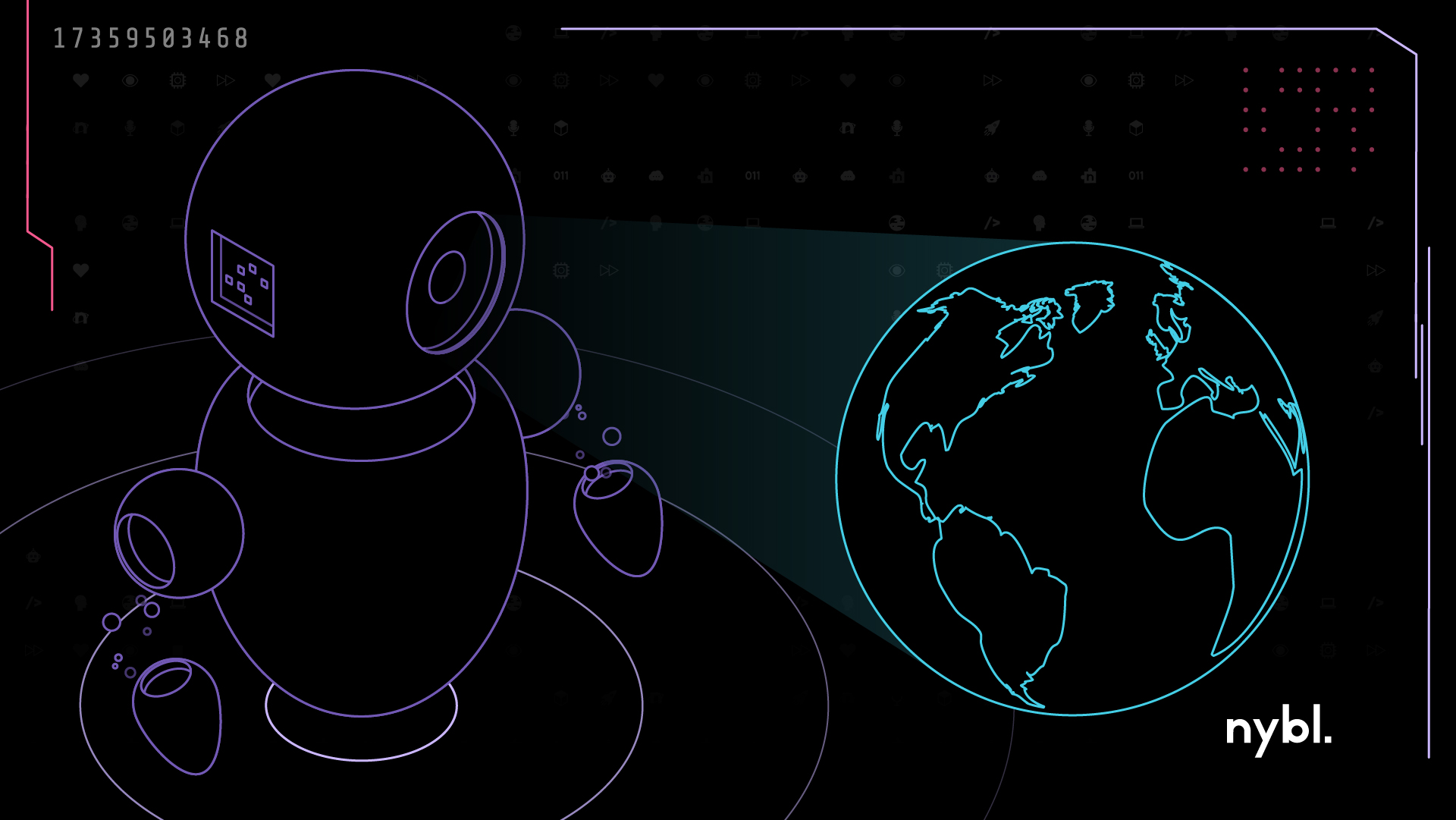Humanity and technology complement each other, and the transformative potential of technology enhances human capacity to address complex challenges, from disaster management to sustainable aid delivery. However, many people are skeptical about the changes technology can bring to the humanitarian sector.
In this article, let’s analyze the excerpts from an episode of nybl’s Voices focusing on the potential and boundless impact of innovative technologies like artificial intelligence (AI) and machine learning (ML) within the humanitarian sector, in light of the collaboration between Dubai Humanitarian and nybl.
The podcast features Giuseppe Saba, CEO of Dubai Humanitarian, and Noor Alnahhas, Co-Founder and CEO of nybl, as they discuss proactive preparedness and response to world crises using innovative and AI-powered solutions.
According to Noor, the partnership between nybl and Dubai Humanitarian encompasses three stages:
- Analyzing Dubai Humanitarian’s logistics data bank to provide them with insights
- Training the Dubai Humanitarian team to deploy and utilize nybl’s AI solutions like nubyla
- Facilitating the development of a global humanitarian AI relief platform
The collaboration between nybl and the Dubai Humanitarian aims to democratize AI tools for the Dubai Humanitarian team, enabling them to enhance their ability to analyze logistics data banks as they are experts in humanitarian systems and can make more impactful contributions to the humanitarian community.
Giuseppe observes that humanitarians have traditionally been reluctant to adopt new technologies. However, there is now a growing recognition of the potential of tremendous tools like AI. These advanced technologies allow them to respond quickly to emergencies cost-effectively and contribute to reducing carbon emissions associated with humanitarian activities.
Significant Benefits of Applying AI-Powered Solutions in Humanitarian Aid Activities
Applying AI-powered solutions may help the humanitarian community analyze logistics data banks, gain insights, optimize resources, and more. AI has the potential to increase the efficiency of the humanitarian landscape by enabling humanitarians to respond quickly and effectively during disasters and conflicts or war. The following are the main ways that AI could support humanitarian activities:
Data Analysis and Insights: AI enables Dubai Humanitarian to analyze vast amounts of data quickly and eliminates the risk of human error. It helps identify trends and patterns to gain valuable insights that inform decision-making and resource allocation during emergencies.
Quick Response and Resource Allocation: AI-powered predictive analytics can enhance Dubai Humanitarian’s ability to analyze historical data to optimize, learn, and become proactive in humanitarian emergencies. For example, in regions like Sudan, which experience frequent flooding, AI can enhance flood prediction capabilities. This enables Dubai Humanitarian to assist the community in advance and preposition resources, ensuring a timely response and support before the floods strike.
Automated Processes and Efficiency: AI automation streamlines administrative tasks and processes within the Dubai Humanitarian, reducing manual workload and operational costs while improving efficiency. Administrative processes, including document processing, data entry, and communication management, can be automated using AI-powered tools, allowing humanitarian workers to focus more on critical decision-making and frontline activities.
Support for Decision-Making: AI-driven decision-support systems provide valuable insights to humanitarian leaders and policymakers within humanitarian aid organizations like Dubai Humanitarian. By analyzing complex and historical data sets and scenarios, AI technologies offer evidence-based recommendations that facilitate informed decision-making and crisis response strategies.
Innovation and Collaboration: AI-powered solutions can facilitate collaboration and information-sharing among multiple stakeholders, including government agencies, NGOs, and local communities, to enhance coordination and response effectiveness.
Importance of Developing Humanitarian Relief AI Platform
A humanitarian relief AI platform is a specialized technology solution that leverages AI and ML to enhance humanitarian relief activities. It addresses the unique challenges that the humanitarian community faces in delivering assistance during crises and emergencies worldwide.
The platform can quickly analyze huge amounts of data and identify areas at risk, allowing proactive preparedness and response strategies. It can also help optimize resource allocation for food, medicines, and shelter, ensuring quick and effective distribution to affected people. Overall, a humanitarian relief AI platform utilizes AI and ML’s capabilities to support the humanitarian community, saving the lives of millions during a crisis.
Wrapping Up
Adopting new technologies and driving change can be challenging, even when these innovations have the potential to transform the world. Noor highlights that people are often reluctant towards new technologies and innovations. Despite such hesitations, he emphasizes that progress in the future is linked to technological advancements. Collective responsibility is essential to ensure that technology is used ethically and purposefully for the betterment of humanity and the world.












